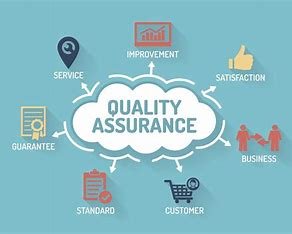Learn how to ensure quality assurance in medical device trials and achieve a failure rate of less than 20%. Discover common pitfalls and expert strategies for success.
Quality assurance (QA) in the development and clinical testing of medical devices is a key factor. Medical device trials must satisfy rigorous quality standards in an industry where patient safety and product efficacy are top priority. In this article, we describe the five frightening problems in device trials and how you can approach them so that your failure rate( # unsuccessful studies / total # of studied) is < 20% of the time. We will also discuss how leading consulting firms in Boston which are home to some of the most experienced consultants within biotech, pharma and life sciences can support you successfully realising this vision.
5 Scary Mistakes in Medical Device Trials
Inadequate Risk Management
Without capturing, evaluating and mitigating risk accurately, the problems can mount during clinical trials. One of the first risk management plans is essential to keep quality and compliance in check.
Poor Study Design
Unreliable data from poorly designed trials can seriously slow down the regulatory process. Designing comprehensive, well-thought-out trials and following established regulatory guidelines.
Data Collection and Management is not standardised
Data quality is essential in clinical trials. Trial Invalidity; Any inconsistency or improper data collection could potentially invalidate the entire trial. Advanced data management systems and regular audits can keep your level of accuracy in check.
Improper Training
All the members of a team must be well trained about protocols and regulations for medical device trials. There is always a need to provide training and updates on the regulatory changes, else non-compliance might arise.
Lack of communication and documentation
Insufficiently documented and poorly communicated code across the team can also lead to mistakes. Clear channels of communication and detailed record keeping are the nuts-and-bolts exercises that underlie a well-run trial.
How to Stay Under That 20% Failure Rate
Taking Your Quality Control Seriously
Proper audits, checks on the procedure and holding ground of standard operations also make sure that quality standards are maintained throughout the trail process.
Utilizing the Latest Technology
One can do this by using the latest technology to collect, manage and analyse data which will help improve accuracy and timely delivery of information thereby reducing chances for errors.
Specialized Consulting Firms
Firms that specialize in the life science, pharma and biotech sectors offer untold value. Companies in Boston, a hub for medical research and innovation, contribute diverse services that can improve the quality of trials performed on medical devices.
With an abundance of consulting in the biotech, pharma and life sciences sectors already located here, you are just a hop away from all those free agent opportunities. Some of the reasons you should engage a biotech consulting firm in Boston, or a pharmaceutical consulting firm in Boston include:
Regulatory Expertise
These companies are backed with the understanding of complex regulatory environment and thus make sure that your trials meet all required regulations.
Planning and Execution from Strategy
Leveraging their wealth of experience, they can help to design and execute trial strategies that will stand up in court reducing risk as well as preserving the integrity of data.
Cutting-edge Solutions
The Value of Boston-Based Consulting Firms
Leading the technology frontier, BioBoston Consulting take an innovative approach when it comes to data management, patient recruitment, or trial monitoring.
At many levels you need quality assurance in your medical device trials and that is something which must be meticulously planned. Being able to execute with increasing imperatives are challenging points as well. Organizations must avoid these common mistakes and can expect an increase in better trial outcomes through the assistance and resourcefulness of expert consulting firms, especially those located at Boston to deliver a failure rate of less than 20%. It will not only increase the likelihood of regulatory approval resulting in safe and effective, market-accessible medical devices but has firm positive outcomes for patient health and protection.
Reach out to BioBoston Consulting today or visit our website for additional information on how we can help your organization.


